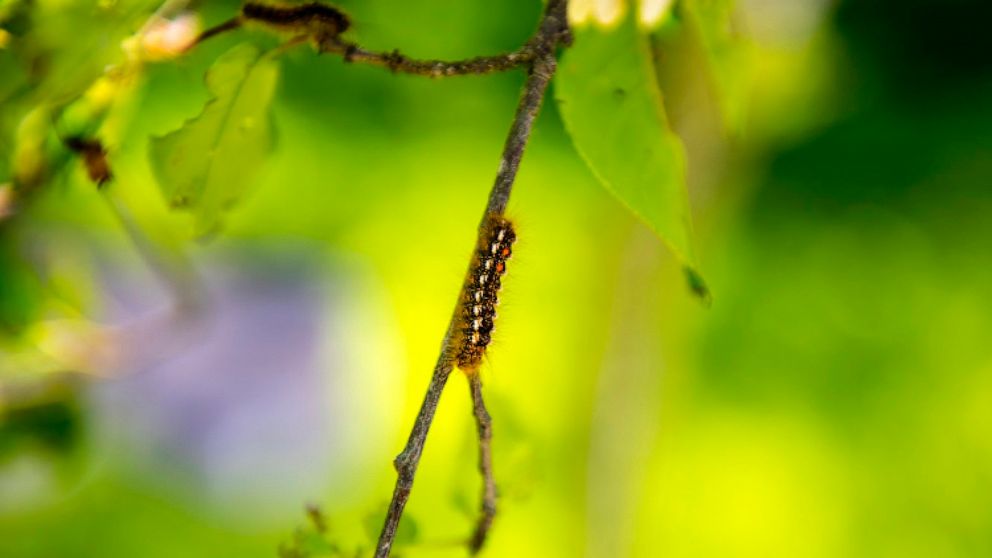
Rash-causing moth spreading due to warming, scientists find
ABC News
A forest pest that bedevils Maine residents and tourists with hairs that cause an itchy rash appears to be spreading due to warming temperatures
PORTLAND, Maine -- A forest pest that bedevils Maine residents and tourists with hairs that cause an itchy rash appears to be spreading due to warming temperatures, a group of scientists has found.
The browntail moth is a scourge in America's most forested state, where it defoliates trees and causes a rash in humans that resembles poison ivy. The hairs of the caterpillars, which have been the subject of an outbreak in the state for about seven years, can also cause respiratory trouble.
The growth and spread of the moth is tied to increasingly warm weather, especially in the fall, the scientists wrote recently in the journal Environmental Entomology. And, unfortunately, climate trends suggest upcoming years could be even worse, they wrote.
Warmer fall temperatures are especially beneficial to the pesky bugs because that allows them to get fatter before they hibernate for the winter, said Eleanor Groden, professor emerita of entomology at University of Maine and the principal investigator on the study.





















 Run 3 Space | Play Space Running Game
Run 3 Space | Play Space Running Game Traffic Jam 3D | Online Racing Game
Traffic Jam 3D | Online Racing Game Duck Hunt | Play Old Classic Game
Duck Hunt | Play Old Classic Game